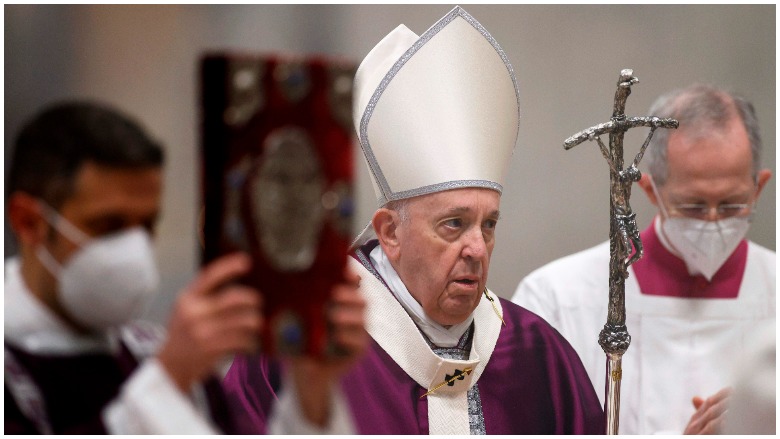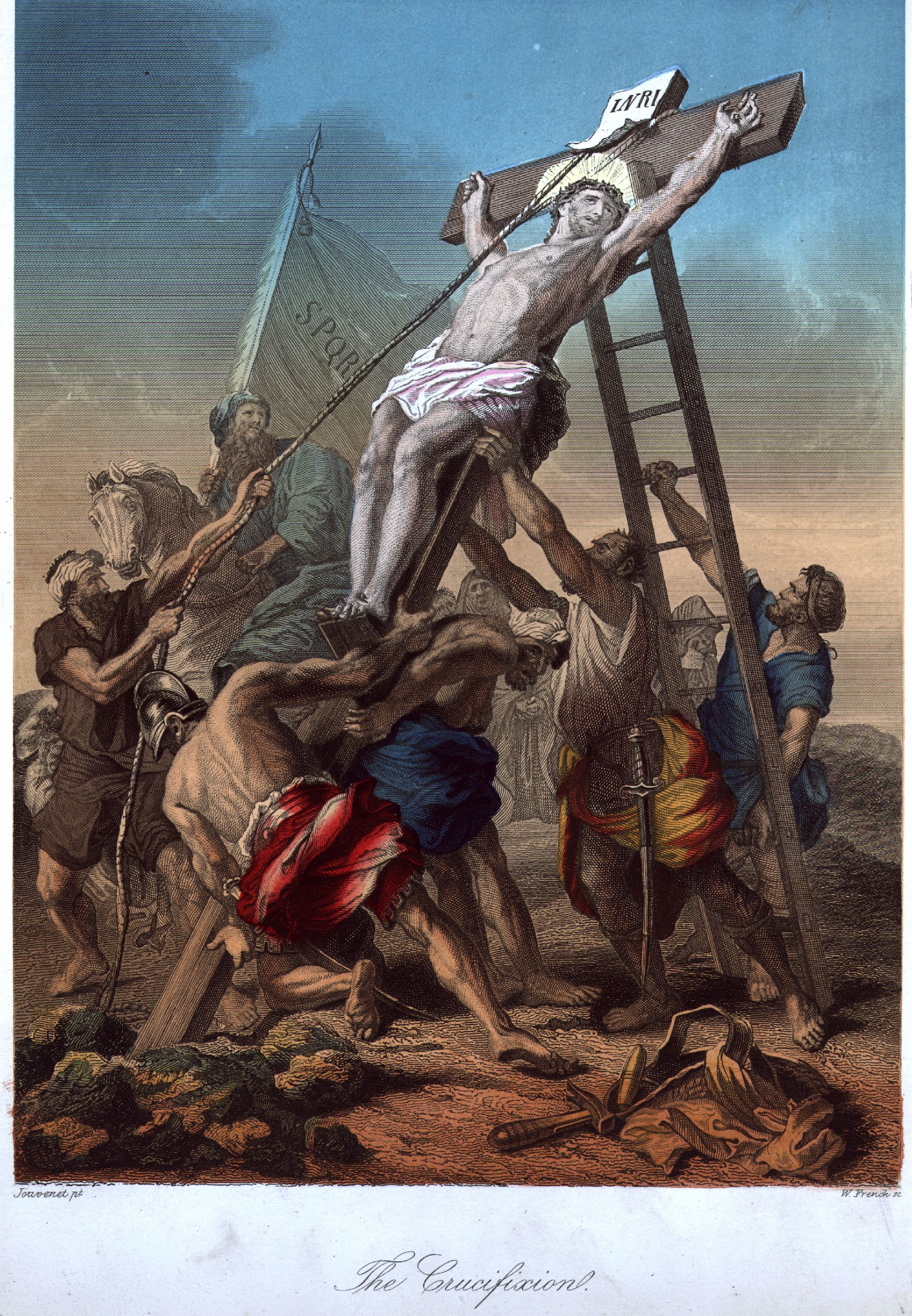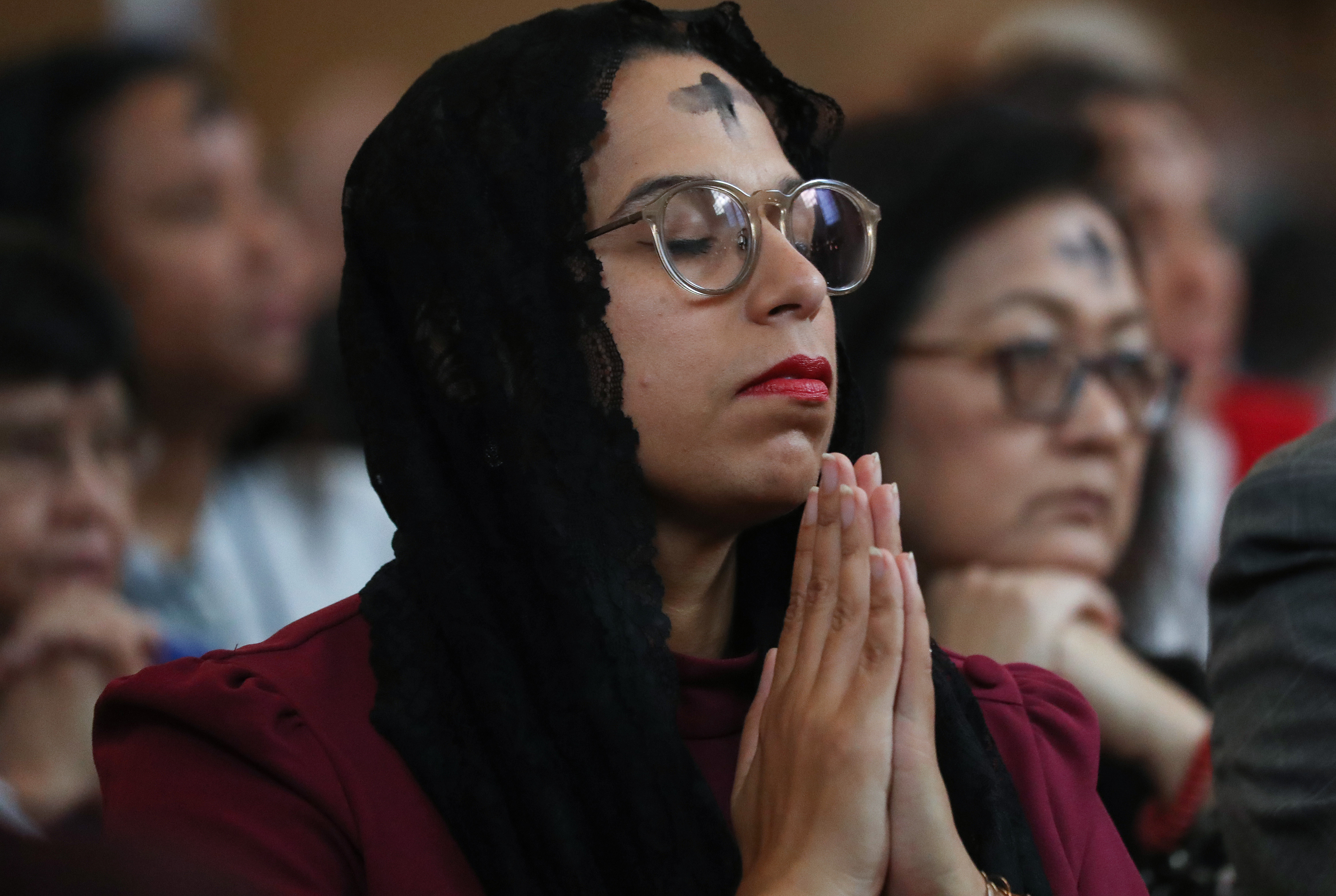
Ash Wednesday is the beginning of the Lenten season. Catholics and some Protestant denominations observe Lent, which is a season for penance and reflection of sins in the weeks before Easter.
Catholics traditionally abstain from warm-blooded animal meat on Fridays during Lent. This obligation from the Church applies on Ash Wednesday as well.
Here’s what you need to know:
Ash Wednesday Is an Obligatory Fasting Day for Catholic Adults & Teens
In addition to the requirement to abstain from eating meat, Ash Wednesday is also an obligatory fasting day in the Catholic Church. But this doesn’t mean Catholics go hungry all day. Fasting rules are less stringent than the name would imply.
As explained by the United States Conference of Catholic Bishops (USCCB), Catholic adults and teenagers may eat only one full meal on Ash Wednesday. But Catholics may also eat “two smaller meals that together are not equal to a full meal.” Snacking isn’t allowed.
There is no limit on liquids consumed but the Church is referencing drinks such as water and juice. Drinking alcohol in excess on Ash Wednesday sort of misses the point of the day.
The fasting obligation applies to teenagers ages 14 and up and adults up to 59-years-old. But there are exceptions, as the USCCB explains:
Those that are excused from fast and abstinence outside the age limits include the physically or mentally ill including individuals suffering from chronic illnesses such as diabetes. Also excluded are pregnant or nursing women. In all cases, common sense should prevail, and ill persons should not further jeopardize their health by fasting.
Pope Francis addressed the reasoning for fasting in an Ash Wednesday message:
Fasting, experienced as a form of self-denial, helps those who undertake it in simplicity of heart to rediscover God’s gift and to recognize that, created in his image and likeness, we find our fulfilment in him. In embracing the experience of poverty, those who fast make themselves poor with the poor and accumulate the treasure of a love both received and shared. In this way, fasting helps us to love God and our neighbour, inasmuch as love, as Saint Thomas Aquinas teaches, is a movement outwards that focuses our attention on others and considers them as one with ourselves (cf. Fratelli Tutti, 93).
Per the Catholic Faith, Jesus Christ Shed His Blood to Redeem Mankind & Abstaining From Meat Is a Symbolic Gesture to Honor That Sacrifice

Getty Jesus is raised on the cross at his crucifixion. Photo by Edward Gooch Collection.
The practice of abstaining on Fridays stems from the faith that Jesus Christ died on a Friday. As the Archdiocese of St. Paul and Minneapolis detailed on its website, Catholics believe Jesus sacrificed his own flesh and blood to redeem mankind for our sins. Catholics don’t eat the meat of warm-blooded animals as a way to honor Jesus’ ultimate sacrifice and death on the cross.
As U.S. Catholic pointed out, it also made sense to abstain “from the shedding (and consuming) of blood” on the day that Jesus died on the cross. The publication wrote that “Friday, the sixth day, was also the day that God created animals, so abstaining from meat is a symbolic ‘stay of execution’ for cows, pigs, and sheep—just as the cross saves us from eternal death.”
The Catholic Church allows the consumption of fish on Fridays and on Ash Wednesday, although eating fish is not a requirement. Per the USCCB, “Abstinence laws consider that meat comes only from animals such as chickens, cows, sheep or pigs — all of which live on land. Birds are also considered meat.” Non-meat items such as eggs, milk and cheese are allowed.
Fish are classified as a “different category of animal” in the Catholic Church, as the USCCB explained. “Salt and freshwater species of fish, amphibians, reptiles, (cold-blooded animals) and shellfish are permitted.”
The Ashes Represent God’s Creation & Penance for Sins

Getty Worshippers pray during Ash Wednesday Mass at the Cathedral of Our Lady of the Angels on February 26, 2020 in Los Angeles.
The coronavirus pandemic was expected to keep many Catholics at home on Ash Wednesday, as congregations continue to hold virtual services. But traditionally, it is common to see Catholics with ashes formed in the shape of a cross on their foreheads. It is an outward sign of repentance as Catholics embark on the Lenten season.
This tradition is meant to symbolize, per the faith, how God created mankind, as Catholic Online explained. On ash Wednesday, the priest or deacon states something similar to “For dust thou art, and unto dust shalt thou return. Repent and believe in the Gospel.” The exact wording may be different based on the specific diocese but the “dust to dust” concept is universal.
This saying stems from the creation story of Adam and Eve in the bible. Again, the exact wording can vary based on the specific Bible edition but the meaning as written in Genesis is the same. Genesis 2:7 reads, “Then the Lord God formed a man from the dust of the ground and breathed into his nostrils the breath of life, and the man became a living being.”
But after Adam and Eve were tempted by Satan and ate from the “tree of the knowledge of good and evil,” God ejected them from the Garden of Eden. In the Catholic faith, Adam and Eve’s decision to disobey God and eat from the tree was the original sin. After their banishment, Adam and Eve had to work the land in order to eat. As explained in Genesis, God told Adam:
“Cursed is the ground because of you; through painful toil you will eat food from it all the days of your life. It will produce thorns and thistles for you, and you will eat the plants of the field. By the sweat of your brow you will eat your food until you return to the ground, since from it you were taken; for dust you are and to dust you will return.”
The Bible states that Eve’s specific punishment for the original sin was the pain of childbirth.
READ NEXT: Rep. Adam Kinzinger’s Wife, Sofia Boza-Holman: 5 Fast Facts